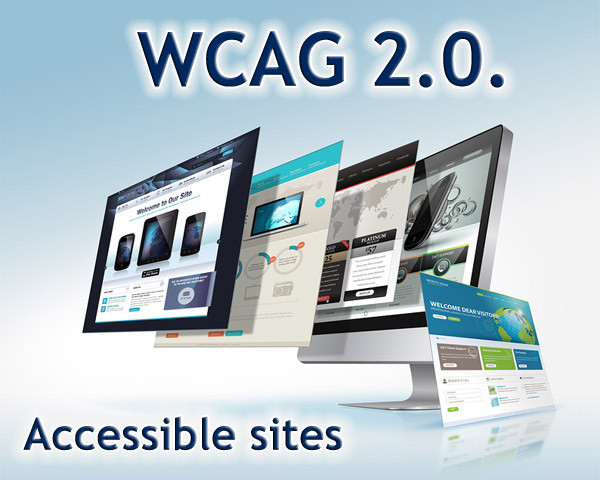.
By
Almost a year ago, I blogged about new legislation in Canada affecting Web accessibility and mentioned that Ontario was leading the way in requiring government and businesses to make their Web content accessible under the Accessibility for Ontarians with Disabilities Act(AODA).
 Now, the Canadian press is reporting that non-compliant B2B companies are receiving enforcement letters that require these companies to file a compliance report or potentially face civil penalties. Additionally, the government plans to conduct 1,700 compliance audits in 2014 to see if the AODA-mandated policies are being implemented across organizations in Ontario.
Now, the Canadian press is reporting that non-compliant B2B companies are receiving enforcement letters that require these companies to file a compliance report or potentially face civil penalties. Additionally, the government plans to conduct 1,700 compliance audits in 2014 to see if the AODA-mandated policies are being implemented across organizations in Ontario.
Having worked in disability rights for over 20 years now, I can’t tell you how promising this is for the disability community. In the United States, advocates have been targeting key B2C companies that provide essential goods and services to the public. They’ve had a few successes (e.g. Target Corporation) and a few failures (e.g. Southwest Airlines) but the overall effect is that corporate America is slowly waking up to the idea that Web accessibility is something that should be included in their business plans.
That message however certainly hasn’t trickled down to the B2B companies like manufacturing and construction that provide goods and services to other companies. These companies are low on the hit list for groups like the National Federation of the Blind (NFB) and so they can shrug off compliance for some time. Also, the Americans with Disabilities Act (ADA) doesn’t offer much help here because its general focus is also on companies that provide goods and services to the public (California’s Unruh Law definitely covers B2B companies but it can’t be enforced by the Justice Department—and private plaintiffs aren’t likely to have standing to sue them). This leaves American companies playing a risk-management game of “catch me if you can”—they know they legally have to do something but won’t budge because they know advocates are too busy chasing after bigger impact targets.
Ontario’s blanket approach that includes B2B companies, by contrast, may have a bigger effect than everything that we’ve been doing here in the United States. Their enforcement efforts go after every kind of company, regardless of how they affect the consumer public. This is the way that the law is written as it has timelines based on the size—not type—of company. This approach makes it impossible to play the same risk management game that I mentioned above and means that every company needs to consider Web accessibility a priority. The AODA is also extremely broad and essentially covers any company that has one or more employees in Ontario.
The bottom line is that, if your company (or any of its subsidiaries) has any kind of presence in Ontario, then you owe it to yourself to become familiar with the AODA before the government comes knocking on your door.
Ken Nakata, JD, CIPP/US is the one of the most well-known attorneys in the area of IT accessibility and is the Director of HiSoftware’s Accessibility Consulting Practice (ACP). Nakata’s work focuses on Web and software accessibility from both a legal and technical perspective.
